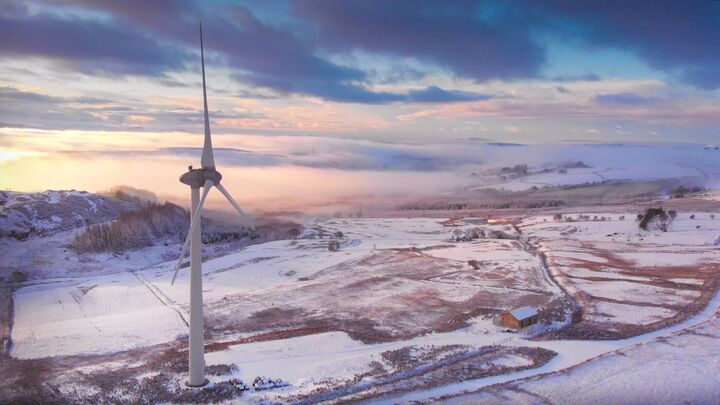For me there was nothing particularly new in the latest IPCC report, I welcomed the stronger language, the acknowledgement of how urgent the situation was, that some of the impacts of climate change are irreversible and the risk that if we don’t act then we may trigger tipping points that mean we can no longer restrict warming to below 2 degrees.
The main impact this report had on me was evoking a range of emotions that I’d been feeling for several years, maybe more. Feelings of anger at the lack of action by government, corporations and the media. Feelings of deep sadness and pain at the thought of my children’s future, of the continued destruction of the natural world, of the incredible inequality and suffering that afflicts our society. Exhaustion after spending most of my adult life trying to make a difference but seeing things still getting worse. A grief for all that’s been lost even in my lifetime that may never return such as habitats, species, any certainty in our future and even what I have and know that we will have to give up.
These are not uncommon feelings for me, I feel them every time I see a news story about wildfires, drought, migration of people, a homeless person, woodlands and forests being cleared, images of bleached coral reefs, young people having to strike and march for their future. Some people would say that perhaps I am suffering from eco-anxiety or something like that, suggesting it is me that has the problem. I would suggest that these are completely normal and understandable emotions given what we are facing. Joanna Macey suggests:
Failure to speak truth reinforces a major affliction of our times: This numbing, moreover, leads to an impairment of solely needed cognitive capacities. The ability to perceive, understand and respond intelligently to our accelerating planetary emergency requires that we raise to conscious awareness the anxiety and other forms of emotional distress which in fact are normal healthy responses to a sense of vital threat.
This report and the analysis around it seems very abstract to me. Given what is in the report we surely need to acknowledge and understand the impact this news and the many images we see is having on people, particularly young people. There seems to be a lack of opportunity for us to process the enormity of what we face, to discuss how we are feeling, share that with other people, acknowledge the incredible situation we are facing and living through.
I am so grateful to the many people are out there that are trying to help people process the situation, people like Joanna Macey who wrote the ‘Work that Reconnects’ and Jem Bendell who brought the idea of ‘Deep Adaptation’ to us. I am also grateful to the many artists, song writers, poets, novelists who are helping us to explore these challenging times, process them and share their own feelings. One of those is our very own Dyfan Lewis who recently was honoured for a collection of Poetry by being awarded the Crown at the Eisteddfod and becoming a Prifardd. This is one of the highest honours that can be bestowed on a Welsh speaking writer. In his collection he expresses some of his anxiety around the climate disaster by imagining his neighbourhood of Grangetown, Cardiff being drowned in floods. This work is an example of how important it is to find ways of expressing our emotions about the time and places we live, exploring what we love and what we find challenging. What is important to us and what we can let go of.
Something else that brings me great solace is working in the community energy sector and with other community-based movements. To be able to work and be connected with people that recognise the times we are in, that understand how important it is for community centred approaches responding to the many challenges we face and that understand how important it is to have open and honest conversations with our communities to work through these challenges together. A great example of this is the GwyrddNi project in Gwynedd which will be holding a series of citizens assemblies to enable communities to come together and develop a local response to climate change.
In an increasingly uncertain future one thing that feels essential to me is that we help support strong, empowered and connected communities. The recent Covid pandemic showed how important our neighbours, communities and local environment were to us. It also showed how important local community assets were including funds from community energy projects, community buildings and community vehicles which were all used to support local people during the pandemic. For me it is more important than ever to build and develop community owned assets, whether that is buildings, land, energy or supporting the incredible volunteers who do so much incredible work.
I am writing this as I believe the first and most important step we must take is to acknowledge and share how we feel, recognise that we are not alone and then come together and respond in the most appropriate way for our communities. I don’t know how this open and honest personal account will be taken. It’s not the normal response we have to this sort of news. If it resonates with some of you and you want to express and share how you are feeling about the climate and ecological emergency, hopefully this will be a start to that conversation. Let’s start building spaces that will enable these discussions to happen. We all need them.

